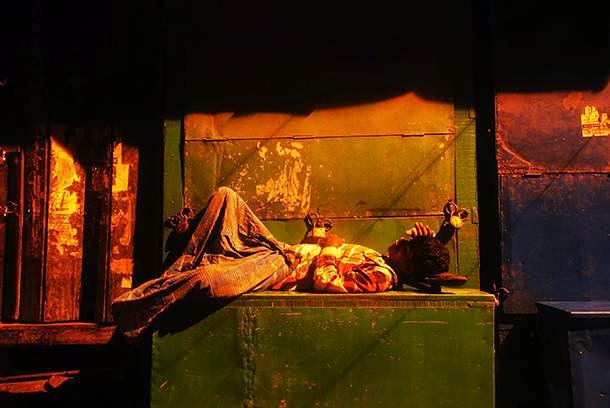The bookshops on College Street in Calcutta are among the last remnants of the quaint old-world charm that the city was once known for. They each specialize in a genre like literature, engineering, or medicine, but at night serve another purpose: a place for people to sleep in the open air. Most of the sleepers are migrant workers from the states of Bihar and Uttar Pradesh, and have left their families to search for work in Calcutta. Sleeping in the open saves them the cost of renting a proper room, as it is difficult for most laborers to afford accommodations with their low wages—even in a city where rents are relatively cheap. And so the daytime din gives way to an eerie stillness at day’s end, and the shops lining the ancient streets turn into nighttime refuges. The men sleep bathed in the colors of their surroundings, slumbering in settings of red, yellow, purple, green.
Calcutta, a cultural and economic capital in India’s east, is home to tens of thousands of homeless people. Many of the migrant workers who sleep on College Street find day jobs in the neighboring markets or the city’s port, and some have their own carts to ferry goods from place to place. They sleep here after the bookshops close at night; at dawn, they wake to look for work. And at night, they sleep again among the colors of the bookshops.



















